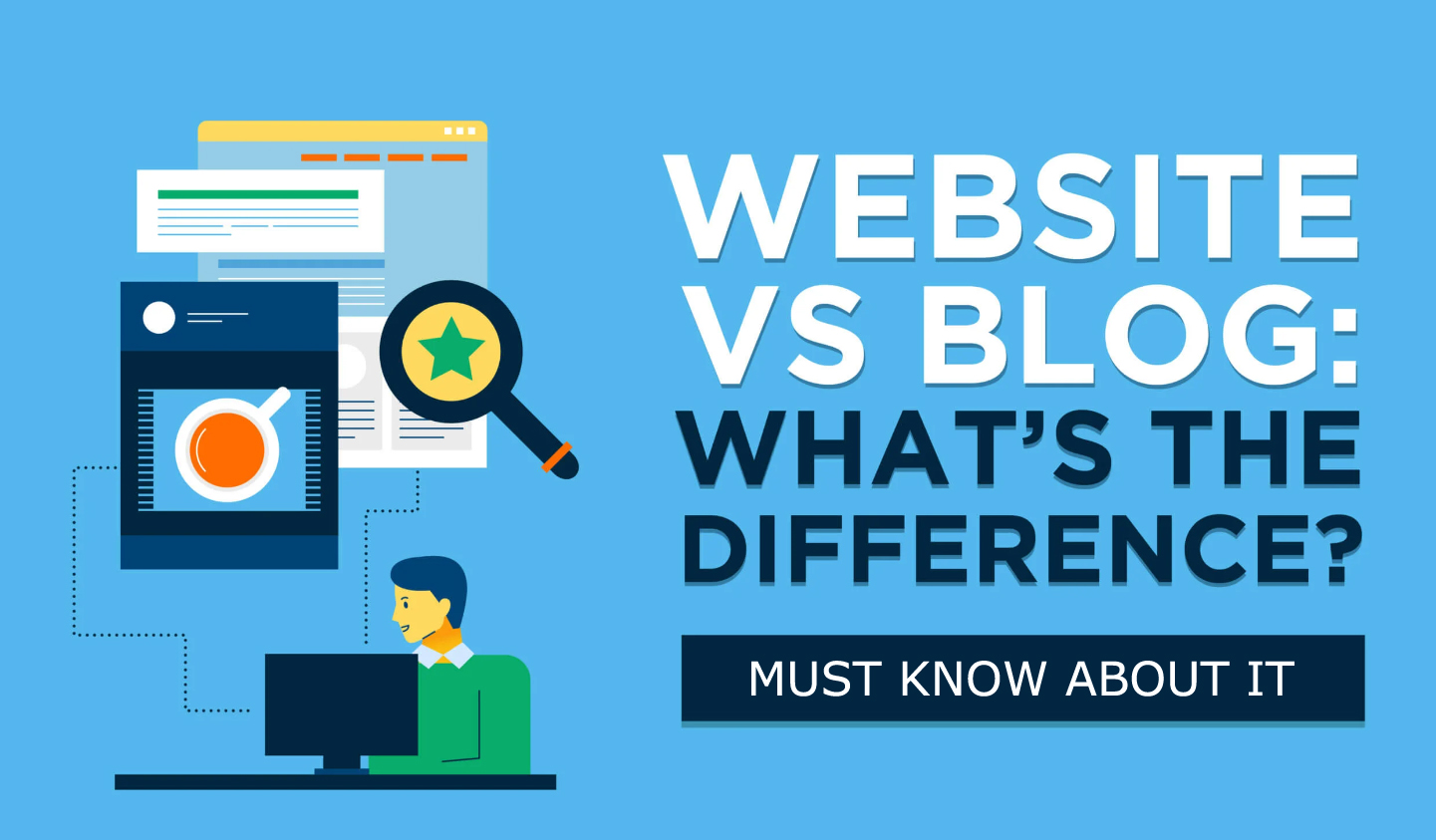The distinction between a blog and a website lies primarily in its purpose, content structure, and functionality. A blog is a specific type of website designed for the regular publication of content, often in a chronological format. The fundamental purpose of a blog is to share information, insights, and opinions on specific topics. Blogs are characterized by frequent updates, with the most recent posts typically appearing at the top of the page. They often encourage reader engagement through comments and may have features like categories and tags to help organize content based on topics.
On the other hand, a website is a broader term encompassing a diverse range of online content. Unlike a blog, a website may include static pages that don’t necessarily follow a chronological order. Websites serve various purposes, such as providing information about a company, showcasing a portfolio, promoting products or services, or facilitating online transactions. While a blog is a specific type of website, not all websites are necessarily blogs.
In terms of content structure, a blog organizes posts linearly, allowing visitors to easily access the latest updates. Categories and tags further aid in navigating the content. In contrast, a website may have a more varied content structure, with sections dedicated to different aspects like home pages, about us pages, product/service pages, and more.
Ultimately, the choice between a blog and a website depends on the goals and content strategy of the creator. Some entities may choose a blog format for its dynamic and interactive nature, while others may opt for a website to present a broader array of information and functionalities

Pros and Cons Between a Blog and a Website
Whether you’re considering a blog or a website for your online presence each option comes with its own set of advantages and drawbacks. Understanding the pros and cons of both can help you make an informed decision based on your specific needs and goals.
For a Blog
Pros
- Dynamic Content. Blogs excel in regularly updated content fostering engagement and attracting a consistent audience.
- Two-way Communication. Blogs often feature a comments section facilitating direct interaction between the creator and the audience fostering community building.
- SEO Benefits. The chronological nature of blogs coupled with regular updates can boost search engine rankings driving organic traffic.
- Personal Branding. Ideal for individuals bloggers and influencers looking to establish a personal brand and share opinions or expertise.
- Monetization Opportunities. Blogs offer diverse monetization avenues including affiliate marketing sponsored posts and building a subscriber base.
Cons
- Structure Limitations. The chronological structure may not be suitable for organizing information that doesn t follow a time-based sequence.
- Formality Issues. Depending on the content blogs might come across as informal which may not align with the desired tone for certain businesses or professionals.
- Limited Customization. Some blogging platforms may offer limited design customization options compared to standalone websites.
For a Website
Pros
- Structured Information. Websites excel in presenting organized and structured information ideal for businesses and entities with static offerings.
- Websites can cover a broad range of purposes from business landing pages to eCommerce stores making them versatile for various industries.
- Websites often project a more formal and professional image suitable for corporate entities and businesses.
- Brand Control. Businesses can exercise more control over their brand image and messaging through the design and structure of a website.
- E-commerce Capabilities. Websites are well suited for selling products and services with features like online stores and secure payment gateways.
Cons
- Less Frequent Updates. Websites being static may not appeal to audiences seeking regularly updated content potentially impacting SEO rankings.
- Limited Interaction. Unlike blogs websites may lack a comments section reducing direct interaction with the audience.
- Initial Complexity. Creating and maintaining a website can be more complex requiring technical know-how or professional assistance.
- Slower SEO Growth. Websites may require additional strategies such as incorporating a blog section to improve SEO rankings compared to regularly updated blogs.
FAQ. A Blog vs A Website
How frequently should I update content on a blog compared to a website?
Blogs benefit from more frequent updates with some bloggers posting multiple times a day. Websites being static may not require as frequent updates but can benefit from periodic refreshment especially if there are significant changes.
How can I monetize a blog compared to a website?
Blogs offer various monetization avenues including affiliate marketing sponsored posts and building a subscriber base. Websites can be monetized through methods such as selling products or services offering subscription-based services or selling ad space.
Do blogs and websites have different SEO strategies?
Yes, the SEO strategies can differ. Blogs benefit from regular updates and a focus on trending topics while websites may need additional strategies such as creating targeted landing pages or incorporating a blog section to improve SEO.
Can a blog or a website be created without technical knowledge?
Yes, both blogs and websites can be created without extensive technical knowledge thanks to user-friendly platforms and website builders. These tools often provide intuitive interfaces for easy content creation and design customization.
Choose a best hosting provider for a blog or website
Best Hosting for a Blog
1. Bluehost
- Bluehost is officially recommended by WordPress.
- It offers a one click WordPress installation.
- Affordable pricing plans suitable for beginners.
- Good customer support.
2. SiteGround
- Known for excellent performance and security.
- Offers managed WordPress hosting.
- Excellent customer service.
3. Hostinger
- Budget friendly hosting with quality features.
- Provides optimized WordPress hosting.
- User friendly control panel.
Best Hosting for a Website
1. SiteGround
- Offers various hosting solutions suitable for different types of websites.
- Excellent performance and security features.
- Great customer support.
2. A2 Hosting
- Known for high speed hosting and reliability.
- Provides various hosting plans to cater to different needs.
- Developer friendly with multiple server locations.
3. HostGator
- Offers a range of hosting options for different types of websites.
- User friendly control panel.
- Good customer support.
Lastly, the updated frequency sets blogs apart from websites. Blogs demand regular content updates sometimes multiple times a day to stay relevant and engaging. This frequent refreshment of content is pivotal for ranking higher on search engine results. Websites with their static pages only undergo updates for substantial changes such as introducing new products or adjusting business details.

Dilshad Mushtaq is the founder and CEO of Best SEO Zone which is a prominent digital marketing agency based in Pakistan Since 2010. He is a professional website developer & Digital Marketer who can create any website and rank it on Google Page One.




